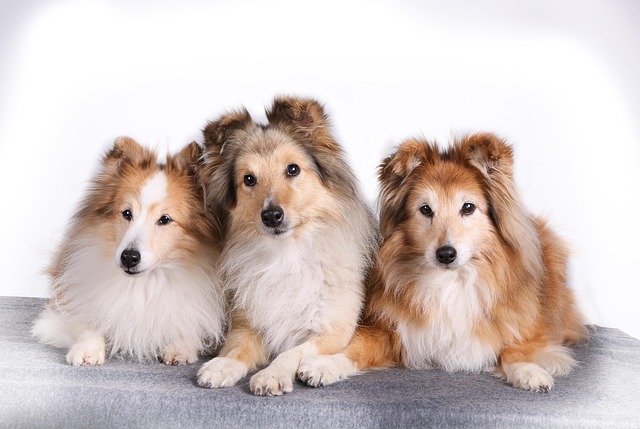
How can I tell if my dog's heatstroke is serious
Let’s be real: It’s a sticky August morning in Los Angeles, and you took your 2-year-old Golden Retriever, Max, for a walk a little later than usual
German Shepherds have a natural instinct to guard—their history as herding and working dogs means they often pick up on their owner’s tension or unusual sounds. But “protection” from an untrained one might look different than you expect: maybe standing between you and a stranger, growling at a loud noise, or sticking close when they sense unease. This isn’t the same as trained protection work, though—untrained dogs can react unpredictably, which is why local laws often regulate large breeds like GSDs.
An untrained German Shepherd might act on impulse rather than control. For example, if a delivery driver approaches quickly, they could bark aggressively or even lunge, not understanding the difference between a threat and a harmless visitor. This kind of reaction can lead to trouble: many areas require owners to manage their dogs in public, and a dog that acts out might violate leash laws or even be classified as a “dangerous dog” in some regions. That’s why understanding your local regulations is key before relying on an untrained GSD for protection.
 Natural loyalty doesn’t equal reliable protection. A well-bonded untrained GSD might stay by your side during a stressful situation, but they lack the skills to assess risk or stop a real threat safely. Trained protection dogs learn to wait for a cue, but untrained ones might either overreact (like attacking a harmless person) or underreact (freezing up when needed). Also, if your GSD shows signs of fear-based aggression—like cowering before barking—it’s not protection; it’s a defense mechanism that can be dangerous for everyone involved.
Natural loyalty doesn’t equal reliable protection. A well-bonded untrained GSD might stay by your side during a stressful situation, but they lack the skills to assess risk or stop a real threat safely. Trained protection dogs learn to wait for a cue, but untrained ones might either overreact (like attacking a harmless person) or underreact (freezing up when needed). Also, if your GSD shows signs of fear-based aggression—like cowering before barking—it’s not protection; it’s a defense mechanism that can be dangerous for everyone involved.
To encourage safe, natural guarding instincts without chaos, focus on basic training first. Teach commands like “sit,” “stay,” and “leave it”—these help you control your GSD in uncertain situations. Socialization is also key: exposing them to different people, dogs, and environments from a young age helps them tell the difference between normal interactions and real threats. Remember, some areas mandate obedience training for large breeds, so check local laws to stay compliant while building a trusting bond with your dog.
An untrained German Shepherd might show protective tendencies, but they won’t provide consistent, safe protection. Relying on their natural instincts alone can put both your dog and others at risk, especially if you’re not following local breed-specific laws. With basic training and socialization, you can nurture their loyalty while keeping everyone safe—and that’s the kind of partnership that makes GSDs such beloved companions.

Let’s be real: It’s a sticky August morning in Los Angeles, and you took your 2-year-old Golden Retriever, Max, for a walk a little later than usual

You're enjoying a summer afternoon at the park when you notice your dog has stopped panting and appears disoriented - their gums are bright red

Let’s paint the picture: You’re in your Denver apartment, watching your 4-year-old Boston Terrier, Ruby, plop down mid-play session with her favorite toy

Many dog owners notice their pets nails seem shorter after regular walks,but how much does this daily activity actually help?The answer depends on where you walk—concrete sidewalks or asphalt streets gently file nails as a dog's paws hit the ground

Most dog owners notice their pup scooting across the carpet at some point, but few connect it to impacted anal glands. These small sacs near a dog’s rectum secrete a scent for marking territory

Most vets agree that regular dog teeth cleaning is key to avoiding painful dental issues later. For healthy adult dogs, a professional cleaning at the vet’s office every 12 to 18 months usually works well.